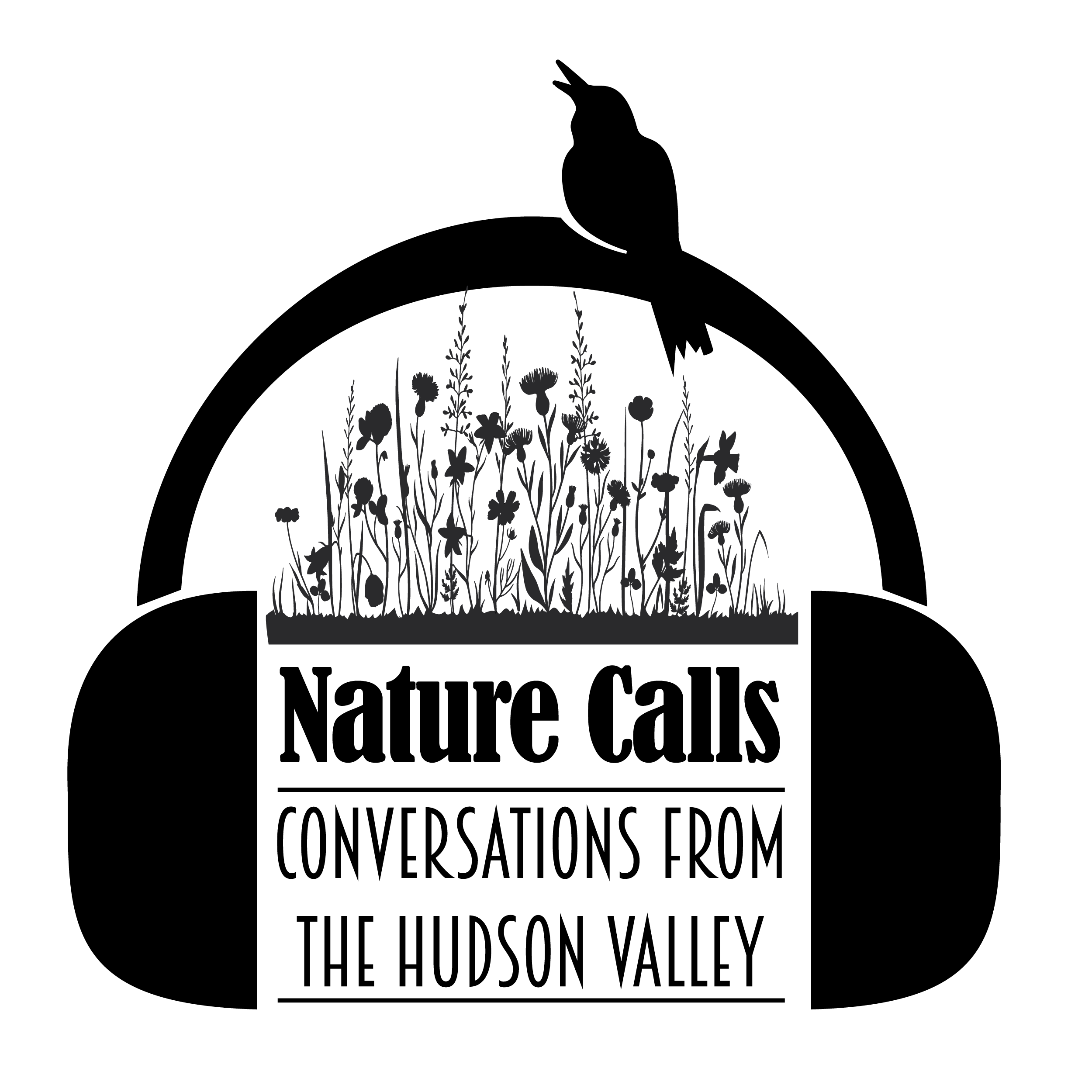Episodes
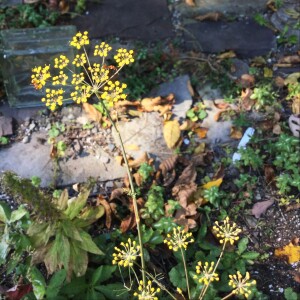
Thursday May 02, 2024
Episode 119: Culinary Herbs 101
Thursday May 02, 2024
Thursday May 02, 2024
An herb is defined as a plant or plant part valued for its medicinal, savory, or aromatic qualities. Many can be used fresh from the garden during the growing season or dried for use during cooler months. Popular herbs include basil, oregano, rosemary, parsley, dill, sage, thyme, mint, chives and cilantro. But there are so many others.
Briana Davis, co-owner of Greene Bee Greenhouse ltd. located in Cornwallville, NY, joins podcast hosts, Jean Thomas and Teresa Golden, in a lively discussion that covers the basics on how to grow culinary herbs. That’s why we call this a ‘101’ episode.
Briana is an avid gardener, horticulturalist, plant collector, and responsible land steward. She describes how some herbs are best grown from seed while others, that take longer to establish, are best grown from a plant. While kitchen herb gardens are very popular, many herbs can be planted among vegetables or flowers to add color, texture or scent.
Herbs are very versatile and come in many cultivars. Briana describes how she uses ones that she grows in her own garden and sells in her greenhouse. She also discusses various ways to preserve them so that they can be used beyond the growing season.
This will make your mouth water and taste buds explode! Enjoy this new episode of Nature Calls: Conversations from the Hudson Valley.
Hosts: Jean Thomas and Teresa Golden
Guest: Briana Davis
Photo by: Jean Thomas
Production Support: Linda Aydlett, Deven Connelly, Teresa Golden, Xandra Powers, Annie Scibienski, and Robin Smith
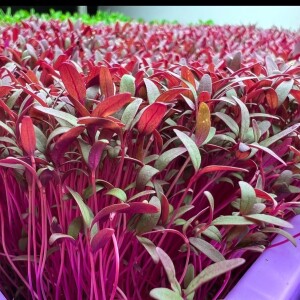
Thursday Apr 25, 2024
Episode 118: Microgreens
Thursday Apr 25, 2024
Thursday Apr 25, 2024
Master Gardener Volunteer, Shelley Haefner, from Old Chatham (Columbia County) is passionate about gardening, nature photography and the great outdoors. She joins the Nature Calls: Conversations from the Hudson Valley podcast for an informative discussion about Microgreens.
We all know that vegetables are a rich source of many healthy nutrients, including dietary fiber, vitamins (A, C, K, E, and B6), folate, thiamin, and niacin, as well as essential minerals like potassium, iron, zinc, copper, magnesium, and manganese. Microgreens are nutrient-dense tiny vegetable and herb greens that can be grown in limited space, in a relatively short time. Given their high nutritional value and the wide variety of species you can grow, microgreens provide nutrient-dense greens that you can grow in your home. While there are about 60 different microgreens, popular ones include broccoli, beets, Swiss chard, and peas. They add a nutritional boost to soups, salads and sandwiches or can be enjoyed on their own.
The basic items needed to grow them include seeds, drinking water, growing medium or mat, growing containers or trays, a small kitchen scale or measuring cups, a spray bottle, a pitcher, and a sharp knife or a pair of scissors. The simple steps to follow to grow microgreens include:
- Calculate and measure the optimal amount of seeds needed for your trays
- Prepare your trays and growing media
- Seed your trays
- Provide adequate water and sunlight
- Harvest the microgreens using a clean, sharp knife or a pair of scissors
Microgreens have become more popular in recent years with ongoing research looking to understand their health benefits. Insights from this research reveal that microgreens contain up to 40 percent more beneficial nutrients (vitamins and minerals) than their full-grown counterparts. They are high in fiber and vitamin K which can be helpful in maintaining a healthy blood pressure. Some (like red cabbage) may have the potential to lower cholesterol and inflammation to reduce heart disease risk. As they are high in fiber, they can support gut health when eaten as part of a balanced diet.
Shelley's enthusiasm for microgreens in contagious. Her favorite quote, Happiness is right where you plant it", is very appropriate when growing your own microgreens. And don't forget to check out her YouTube channel which provides helpful how-to videos, experiences, and tips on flower gardening, vegetable gardening and gardening tools. It's a fun way to dive into Zone 5 organic perennial and edible kitchen gardening.
Hosts: Teresa Golden and Jean Thomas
Guest: Shelley Haefner
Photo by: Shelley Haefner
Production Support: Linda Aydlett, Deven Connelly, Teresa Golden, Xandra Powers, Annie Scibienski, Robin Smith
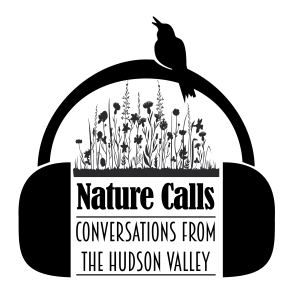
Thursday Apr 18, 2024
Episode 117: Grapes of the Hudson Valley
Thursday Apr 18, 2024
Thursday Apr 18, 2024
Do you know that New York State is among the top five wine producing regions in the USA? The Hudson Valley is actually one of four main wine growing regions, or American Viticultural Areas (AVA) in New York, along with Lake Erie, the Finger Lakes, and the east end of Long Island.
The Hudson River region has a strong agricultural heritage and provides good soils and climate for grape production. Wine has some serious history in this area and this region which hosts three wine trails. Countless grape varieties were forged in the Hudson Valley throughout mid- to late-1800s. Breeders from the area crossed European varieties with North American species with the intent to create more sustainable grape cultivars. These breeders of the 19th century worked with horticulturists, writers and nurserymen to propagate and disseminate their varieties throughout the United States. These Hudson Valley heritage varieties went on to create wines of outstanding quality, garnering national and international accolades.
Once an important table grape area, the Hudson region now has more cold hardy wine grapes planted each year. Grape growing has become increasingly popular due to New York’s moderating temperatures and the higher precipitation levels associated with climate change.
Grapes can be eaten fresh as table grapes or enjoyed in a variety of products such as juice, jelly, raisins, and the ultimate processed grape product, wine. Many species are native to North America, whereas others (primarily wine grapes) are natives of Europe. Because grapes are vines, they can be grown on arbors, fences, or trellis systems, and can be trained to conform to many shapes and sizes.
An ideal site for the cold-tender cultivars should have 160 or more frost-free days. A slight degree of slope will assist in air drainage, and east-to-south exposures are desirable. Well-drained soils like a clay loam are most preferred, as they assist in removing excess moisture from the root zone.
Cultivar selection should be made based on the purpose of the grape. For example, Concord grapes make a wonderful juice and jelly, but its wine has limited appeal and folks tend to dislike seeds in their fresh- eating grapes. On the other hand, Concord is well adapted to our climate, having good pest resistance and cold hardiness. European grapes (Vitis vinifera) such as Chardonnay or Cabernet Franc have excellent wine-making characteristics but are susceptible to disease and are more cold-tender than native grapes. In many cases, French American hybrid grapes offer a good compromise for wine production because they have good winemaking characteristics as well as better horticultural traits than their European cousins.
Grapes are sold as rooted cuttings or grafted plants that should be planted in the spring as soon as the soil can be worked. Only the European grapes require grafting. To the extent possible, plant rows in a north-south orientation to capture the most sunlight. Be sure to keep the new vines watered and weeded and remove all flower clusters in their first year. A small amount of fertilizer may benefit the young vine.
Pruning occurs in winter months when vines are dormant, usually between December and March. Pruning sets the bud number and crop for the upcoming season and is a very important viticulture practice. Grapes bear their fruit on one-year-old wood.
J. Stephen Casscles is a grape grower, winemaker and author, from Athens, NY, (Greene County) after an illustrious career as an attorney. In addition, he lectures on wine, grape cultivation, 19th century American horticulture and landscape architecture at botanical gardens and historical societies throughout New York and New England. Listen to Steve on Nature Calls: Conversations from the Hudson Valley as he talks about Grapes in the Hudson Valley.
Hosts: Jean Thomas and Robin Smith
Guests: Steve Casscles
Photo by: Steve Casscles
Production Support: Linda Aydlett, Deven Connelly, Teresa Golden, Xandra Powers and Annie Scibienski

Thursday Apr 11, 2024
Episode 116: Weeds and IPM
Thursday Apr 11, 2024
Thursday Apr 11, 2024
Weed management is the bane of existence for many gardeners and one of the most critical aspects of farming and land management. Finding safe, effective, and culturally appropriate weed management solutions is a challenge but can be addressed by betting understand the life cycle of the specific weed that is causing a problem.
Dr. Bryan Brown is a Senior Extension Associate, NYS Integrated Pest Management and Adjunct Assistant Professor, School of Integrative Plant Science Horticulture Section at Cornell University’s College of Agriculture and Life Sciences. He joins Nature Calls: Conversations from the Hudson Valley to discuss Weeds and IPM (Integrated Pest Management). Bryan’s focus is on improving the management of weeds while minimizing the environmental, economic and human health risks.
Integrated Pest Management (IPM) is a decision-making process that uses science-based information on the life cycles of pests (including weeds) and their interaction with the environment to manage damage by the most economical means, and with the least possible hazard, to people, property, and the environment. In the case of weed management, it may involve hand pulling, tilling the soil, covering the soil with cardboard, solarization, other mechanical removal means, or chemical controls. IPM weed management steps typically include:
- Identifying the plant(s)that are the source of the problem.
- Understanding the biology and economics of the weed, where it is found, and any potential ‘Achilles heel’.
- Monitoring plants including any natural controls (insects, competing plants, etc.).
- Establishing any injury thresholds to understand the potential damage from infestations, its natural enemies, the sensitivity of the site, and the weather. Actions should be taken only when the potential damage is justified.
- Selecting an appropriate control strategy.
- Cultural practices include modification of habitat or operating procedures to minimize damage and enhance natural control. Choosing plant varieties that are resistant to pests, or adjusting planting time, fertilization, tillage, and harvest operations to have the most beneficial effect on the weed management situation.
- Biological controls including predators, parasites, and diseases.
- Chemical control involves selecting an herbicide with the lowest toxicity to humans and non-target organisms and using it in such a way as to prevent or minimize undesirable environmental effects. After carefully reading the label, the lowest effective dosage of chemical is applied at the appropriate time of year.
- Evaluating the weed management program and improving it when possible.
In this episode, you’ll learn about the importance of understanding the weed’s life cycle, whether it’s an annual, biennial, or perennial to assess potential control techniques. For annuals, it’s critical to stop the plant from going to seed. For perennials, interrupting the plants' ability to send energy to its spreading roots is key to success. So using cover crops or mowing at the right time of year and the right height can make a difference. Hoes can help with mechanical removal. There are many types available, but the best one is a personal preference.
Research efforts are underway to determine potential biological controls for some problematic weeds like Japanese knotweed. As Bryan says, there are lots of new developments coming to help with weed management in the future.
Hosts: Tim Kennelty and Jean Thomas
Guest: Dr. Bryan Brown
Photo by: Cornell University
Production Support: Linda Aydlett, Deven Connelly, Teresa Golden, Xandra Powers, Annie Scibienski
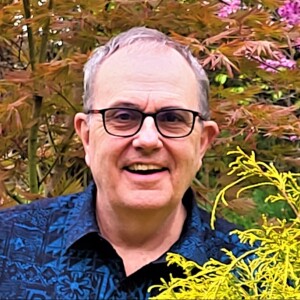
Thursday Apr 04, 2024
Episode 115: John Bartram
Thursday Apr 04, 2024
Thursday Apr 04, 2024
John Bartram (1699–1777) was an American-born botanist, horticulturalist, naturalist, and explorer. He has been lauded as the “father of American botany” and the "greatest natural botanist in the world." He made significant contributions to the collection, study, and international introduction of North American flowering trees and shrubs and was a pioneer in the importation and cultivation of non-native plants.
John only had a common country schooling, but at a young age developed an interest in botany and ‘natural history’.He later inherited a farm on which he established himself and his young family. Married twice, he was the father of 11 children. His third son, Willian (1739–1823), became a noted botanist, natural history artist, and ornithologist in his own right.
John Bartram started his botanical career by devoting a small area of his farm to growing plants he found interesting. Later, he made contact with European botanists and gardeners interested in North American plants and developed his hobby into a thriving business.
Bartram was particularly instrumental in sending seeds from the New World to European clients. The Boxes", as they became known, were shipped for distribution in England to a wide list of clients. The boxes generally contained 100 or more varieties of seeds, and sometimes included dried plant specimens.
Bartram traveled up and down the East Coast virtually every year from 1735 through 1766, gathering unusual plants and touring gardens from New England to Florida. Bartram visited New Jersey and New York, and while exploring the Catskill mountains in 1742, he made the first of several visits to physician and botanist Cadwallader Colden and his daughter Jane, with whom he carried on a lengthy correspondence. In 1743, he was commissioned by the British crown to visit the Indian tribes and explore the wilderness north to Lake Ontario in Canada. His attention to the natural habitats of plants shaped Bartram’s understanding of botany and his approach to his own garden.
Bartram’s Garden, established in 1728, is considered the first botanic garden in the United States. Still operating in a partnership between the city of Philadelphia and a non-profit foundation, it was designated a National Historic Landmark in 1960.
Bartram was a friend of Benjamin Franklin and an original member of the American Philosophical Society. He was one of the first practicing Linnaean botanists in North America and named the botanist for the American colonies to King George III.
Kirk Brown, a graduate of Cornell University, is an expert in garden history, garden design, and garden photography. He brings John Bartram to life on this episode of Nature Calls: Conversations from the Hudson Valley. His meticulously researched portrayal of America’s first ‘plantsman’ describes the horticultural history of America at the very beginning of the international world of plant discovery and identification. Kirk travels the country wearing the mantle of two of America's foremost practitioners of the Art of Gardening: John Bartram and Frederick Law Olmsted. Additionally, he delivers design and garden history lectures as himself.
Hosts: Tim Kennelty and Jean Thomas
Guest: Kirk Brown
Photo by: Kirk Brown
Production Support: Linda Aydlett, Deven Connelly, Teresa Golden, Xandra Powers, Jean Thomas, Annie Scibienski
Resources
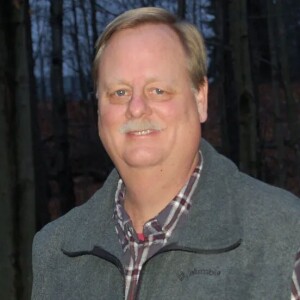
Thursday Mar 28, 2024
Episode 114: Living with Wildlife (Part 2)
Thursday Mar 28, 2024
Thursday Mar 28, 2024
Paul Curtis re-joins the Nature Calls: Conversations from the Hudson Valley podcast in Part 2 of an informative discussion about living with wildlife in New York State. He is a Professor and Department Extension Leader focused on Natural Resources and the Environment at Cornell University’s College of Agriculture and Life Sciences. Paul’s focus is on reducing negative impacts associated with wildlife, as he seeks to integrate his extension programming with applied research. He has published more than 80 papers dealing with the management of human-wildlife interactions.
In this episode, in addition to a discussion on black bears, Paul’s extensive wildlife background provides insights into coyotes, fishers, foxes, bobcats, martins, weasels, skunks, opossums, woodchucks, raccoons and more. This episode will enlighten you on the wide range of wildlife that can be found in New York State and how to successfully and peacefully co-exist with them.
Hosts: Tim Kennelty and Jean Thomas
Guest: Paul Curtis
Photo by: Cornell University
Production Support: Linda Aydlett, Deven Connelly, Teresa Golden, Xandra Powers, Annie Scibienski
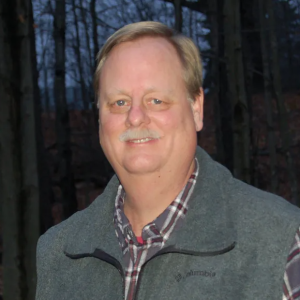
Thursday Mar 21, 2024
Episode 113: Living with Wildlife (Part 1)
Thursday Mar 21, 2024
Thursday Mar 21, 2024
Reducing negative impacts associated with wildlife is a common concern of many residents of New York’s Hudson Valley. In this first part of an informative discussion, we explore how to peacefully coexist with black bears, white-tailed deer, and coyotes.
White tail deer are becoming a more common issue in rural and suburban communities with deer/vehicle collisions and their over-abundance is often associated with damage to forests and gardens. Black bears frequently have been regarded by humans as nuisances, but the reality is that they tend to steer clear of humans, unless food (often garbage) is left around for their perusal. Coyotes also have a reputation for targeting pets in the Hudson Valley. In reality, they view dogs as competitors within their territory and thus small dogs should be kept on a leash to minimize contact with coyotes.
Learning about these animals and their behaviors can help us understand how to peacefully co-exist with them and learn how to control any damage created by their presence. When residents need help with their non-human neighbors, licensed wildlife control operators can help. Learn about the on-line training that is available to become a wildlife control operator and some of the issues they encounter.
Paul Curtis is a Professor and Department Extension Leader focused on Natural Resources and the Environment at Cornell University’s College of Agriculture and Life Sciences. He joins the Nature Calls: Conversations from the Hudson Valley podcast team in an enlightening discussion about living with wildlife in New York State.
Paul obtained his Ph.D. in Zoology from North Carolina State University in 1990. He is a co-author of the National Wildlife Control Training Program, and a Certified Wildlife Biologist® with The Wildlife Society. During the past 30+ years, Paul has provided leadership for the Wildlife Damage Management Program at Cornell’s College of Agriculture and Life Sciences. He has published more than 80 papers dealing with the management of human-wildlife interactions. His research interests have included resolving wildlife conflicts in suburban, forested, and agricultural landscapes, wildlife fertility control, and managing community-based wildlife issues. He is currently working on methods to better monitor deer impacts to forest regeneration and enhance biodiversity.
Listen to the first of a two-part discussion about living with other wildlife on the podcast, Nature Calls: Conversations from the Hudson Valley.
Hosts: Tim Kennelty and Jean Thomas
Guest: Paul Curtis
Photo by: Cornell University
Production Support: Linda Aydlett, Deven Connelly, Teresa Golden, Xandra Powers, Annie Scibienski
Resources
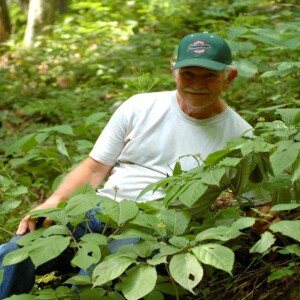
Thursday Mar 14, 2024
Episode 112: Bob Beyfuss
Thursday Mar 14, 2024
Thursday Mar 14, 2024
Robert Layton Beyfuss (1950-2023) was known as the ‘poet of gardening’ but he wore many hats. A longtime educator with Cornell Cooperative Extension of Columbia and Greene Counties (retiring in 2009), Bob was also a well-known columnist, widely sharing his knowledge and love of gardening. In addition to being an Internationally Certified Arborist, he is perhaps best remembered as having been a passionate expert on the cultivation of ginseng.
His ginseng journey began at Cornell University where he pursued a Masters degree in agriculture, after earning a Bachelors degree in botany from Rutgers University. The title of his Master’s Project was “The History, Use and Cultivation of American Ginseng.” American ginseng (Panax quinquefolius) is perhaps the most valuable non-timber forest crop in Eastern North America.
During the course of his career, Bob authored several booklets and fact sheets about the growing of ginseng and mushrooms, including “American Ginseng Production in NY State,” “The Practical Guide to Growing Ginseng,” “Ginseng Production in Woodlots,” and “Companion Planting,” among others. He was also an advocate for forest farming as both a conservation solution and an economic opportunity.
Outgoing, opiniated, thoughtful, inspirational, and listener, are some of the adjectives that described Bob. He was also an avid outdoorsman and equally loved the time he spent turkey hunting, fishing, foraging, and gardening in New York, as well as the time he spent fishing, and playing softball. In more recent years, Bob split his time between his homes in Schoharie County, NY and Florida (near his children and grandchildren).
Bob Beyfuss’ influence and impact on the ginseng industry are immeasurable. His own ginseng activities in New York State and his extensive cooperative extension activities outside the world of ginseng earned him, in 2021, declared a ‘State Treasure of New York”.
Anna Plattner, ginseng grower and educator from Wild Hudson Valley, joins Nature Calls: Conversations from the Hudson Valley in a tribute to Bob with this episode being aired on the anniversary of his birth. Anna and her husband, Justin Wexler, manage the field operations of American Ginseng Pharm (AGP), a large-scale agroforestry farm in upstate New York that uses innovative methods to cultivate American ginseng in a way that benefits both humans and the Earth.
Hosts: Jean Thomas and Teresa Golden
Guest: Anna Plattner
Production Support: Linda Aydlett, Deven Connelly, Teresa Golden, Xandra Powers, Annie Scibienski
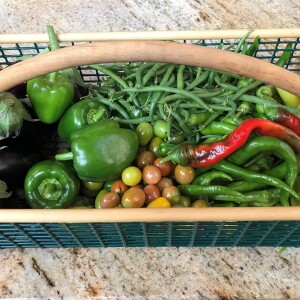
Thursday Mar 07, 2024
Episode 111: Veggie Patch Retrospective (Part 3)
Thursday Mar 07, 2024
Thursday Mar 07, 2024
Part 3 of the Veggie Patch Retrospective wraps up with 4 more short segments about gardening for edible food crops. Master Gardener Volunteer, Teresa Golden, continues to provide advice to the beginner and experienced gardener about how to tend a successful vegetable garden.
The first segment focuses on root crops including beets, carrots, radishes, onions, turnips, parsnips, potatoes, among others. The category gets its name because their edible roots grow under the soil. Knowing the growing season of the specific crop you are growing i s one key to success. They tend to be directly sown into the soil but proper spacing is also very important. Consistent watering is also key as is storing them properly once harvested.
Next is all about garden maintenance and tools. Maintenance revolves around weeding, watering, and fertilizing. Make sure to water the soil, not the plants. One way to control weeds is to mulch, but whatever you do, don’t let the weeds got to seed to prevent an even bigger challenge in the future. Adding organic matter (like compost) is the preferable way to fertilize but if you do use supplemental chemical fertilizers, make sure to read the labels and apply them correctly. The right tools can make garden maintenance easier so listen in to learn the best tools for the job.
The segment on extending the gardening season focuses on various ways to keep the soil warm. Cloches, cold frames, row covers, low tunnels and high tunnels are all discussed. Hopefully, this discussion can help you decide which approach might work best for you.
Finally, the Veggie Patch series ends with a segment about putting your garden to ‘bed’ for the winter. Once your crops are harvested, this involves pulling all dead or unproductive plants and either composting them (if they don’t have seeds) or discarding them. Remove all cages and supports, making sure to clean them before storing them for the winter. Testing your soil pH in the fall will inform you of any needed amendments (like compost). This is a great time to sanitize, oil, and sharpen your garden tools for the next season.
We hope this series gives you the confidence to start and nurture your home vegetable garden.
Host: Teresa Golden
Photo by: Teresa Golden
Production Support : Linda Aydlett, Deven Connelly, Teresa Golden, Xandra Powers, Annie Scibienski
Resources
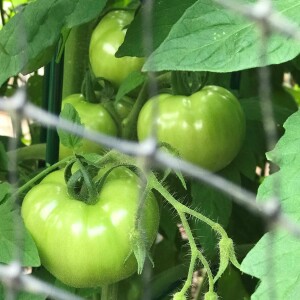
Thursday Feb 29, 2024
Episode 110: Veggie Patch Retrospective (Part 2)
Thursday Feb 29, 2024
Thursday Feb 29, 2024
Welcome back to part 2 of the Veggie Patch Retrospective where we compiled together three previously aired short segments on various aspects of vegetable gardening. Instead of searching for the content in previous episodes, we’ve put these shorter segments together in a single episode for your listening convenience. Especially as winter drags on, it’s helpful to be able to dream of warmer weather when you get back into enjoying your garden.
This specific episode is about three popular vegetables found in home gardens: Tomatoes, Beans, and Cucurbits (cucumbers and squashes).
Tomatoes are one of the most beloved garden plants, but they can also be frustrating to grow. Learn about the best time to plant them (soil temperature is key so don’t be in a hurry), space them, and water them. Unfortunately, you will learn that tomatoes are as popular with pests and pathogens, as they are with humans. Learn how to spot them and manage them so that you can have a productive and delicious crop to harvest.
Legumes are another category of popular crops. They include the popular pea (garden, snap, snow and other types) and beans. Legume seeds can typically be planted directly in the ground so there is no need for seed starting or buying transplants. There are also many types of beans to experiment with. There are the traditional bush beans (perhaps one of the easiest to start with), pole beans (that require supports but produce a larger yield) and runner beans (whose plants are sized between bush and pole). Beans can be enjoyed raw, or cooked and can also be dried for future use. Legumes are very versatile crops, as well as being delicious and healthy too!
Cucumbers and squashes (members of the cucurbit family) are also home garden favorites. One of the secrets to a productive crop is to harvest the fruits regularly before they get too big. There are so many options available to grow so experiment with them to determine your favorites.
Listen to Teresa Golden, Master Gardener Volunteer, as she talks you through the various aspects of growing these vegetable crops and enjoy!
Host: Teresa Golden
Photo by: Teresa Golden
Production Support: Linda Aydlett, Deven Connelly, Teresa Golden, Xandra Powers, Annie Scibienski

